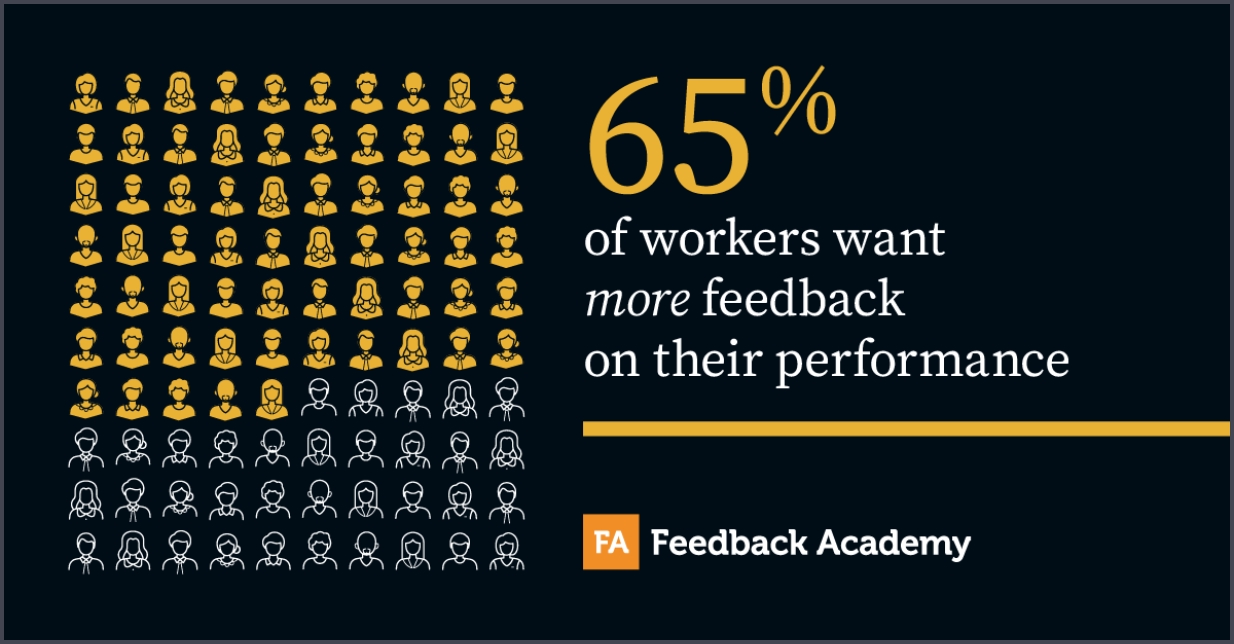Why We Struggle with Feedback

Constructive feedback is undeniably important in the workplace for an organization to thrive. Study after study has shown the impact that both good and bad approaches to feedback have on employee morale, retention, and productivity. Creating “feedback cultures” in the workplace has been touted as one of the most effective ways to improve performance across all metrics. Despite all this research and hype, why is the concept of giving and receiving feedback still so difficult for many individuals to implement or accept?
You may not be surprised to learn that Harvard Business Review found that 44% of managers said giving developmental feedback was stressful and difficult and 21% of managers admitted to avoiding giving feedback altogether because of this. There are several good psychological, emotional and cultural reasons for this, all of which can be overcome if tackled appropriately.
The Current System is Broken
First things first, we have to acknowledge that the current and prominent form of feedback in the workplace is deeply flawed. The once-a-year performance review, based on metrics that do not typically account for individual differences, are actually doing more harm than good in some cases. A seminal meta-analysis suggested that about 30% of feedback interventions actually hurt performance and research firm CEB found that the average manager spends over 200 hours on annual performance reviews but nine in ten managers are unhappy with the way those reviews are conducted.
This isn’t to say that annual reviews should be eliminated altogether, although many companies have made the decision to do just that, but rather that they should not be the end-all-be-all of performance feedback. In fact, 65% of workers surveyed across the globe wanted more feedback in their day to day jobs. So feedback itself isn’t the issue, it’s the lack of useful and consistent feedback in the current system.
We Assume People Don’t Need Feedback
When people are meeting expectations or don’t seem to be struggling in their jobs, it’s easy to assume they don’t need to hear feedback from supervisors and colleagues. But that’s untrue and a major misunderstanding that can lead to higher quality talent leaving an organization. That assumption is also based on the fallacy that all feedback is negative or critical in nature. A true feedback culture focuses on both positive and constructive feedback.
According to research conducted by Gallup, “only one in three workers in the U.S. strongly agree that they received recognition or praise for doing good work in the past seven days. At any given company, it’s not uncommon for employees to feel that their best efforts are routinely ignored. Further, employees who do not feel adequately recognized are twice as likely to say they’ll quit in the next year.” Giving positive feedback and recognition is just as important as giving constructive feedback for performance improvement, especially when it comes to retention. However, positive feedback can also help employees who aren’t high performers. Research shows that 69% of employees say they would work harder if they thought their efforts were being recognized. In other words, even if someone isn’t exceeding expectations, making an effort to recognize the areas where they are excelling can help them improve overall performance without ever having to give “negative” feedback.
“At any given company, it’s not uncommon for employees to fell that their best efforts are routinely ignored.”
We’re All Human
Perhaps the biggest and most obvious reason we struggle with feedback is quite simply because we’re all human. Telling someone how they can do something better is tough for those of us who don’t like hurting other peoples’ feelings. And people who aren’t squeamish about offending others aren’t likely to be delivering feedback in a way that is well received.
The biggest concern for managers providing feedback to their team members is creating a rift in their interpersonal relationships. It’s great for comradery to exist in the workplace, but often those friendships mean people aren’t as honest as they should be with each other about their performance.
Likewise, being on the receiving end of feedback can make some people feel cornered and criticized. Personal emotions can get in the way of making positive improvements in their performance that could make their job easier or create more professional success for them in the long run. As Stanford University professor, Myra Strober said in her Harvard Business Review article Fear of Feedback, “most of us have to train ourselves to seek feedback and listen carefully when we hear it. Absent that training, the very threat of critical feedback often leads us to practice destructive, maladaptive behaviors that negatively affect not only our work but the overall health of our organizations.”
We Don’t Have the Training
As Professor Strober points out, without training about how to give and receive feedback, destructive behavior is bound to continue. Feedback, like so many other workplace skills, has to be taught and then practiced on a daily basis. Organization-wide training programs that are weaved into the daily workflow are more likely than one-off training events to be effective and help employees thrive. Fortunately, training programs that recognize the need for better feedback are making strides and are easier than ever to implement. Take an interactive self-guided tour of Feedback Academy.



